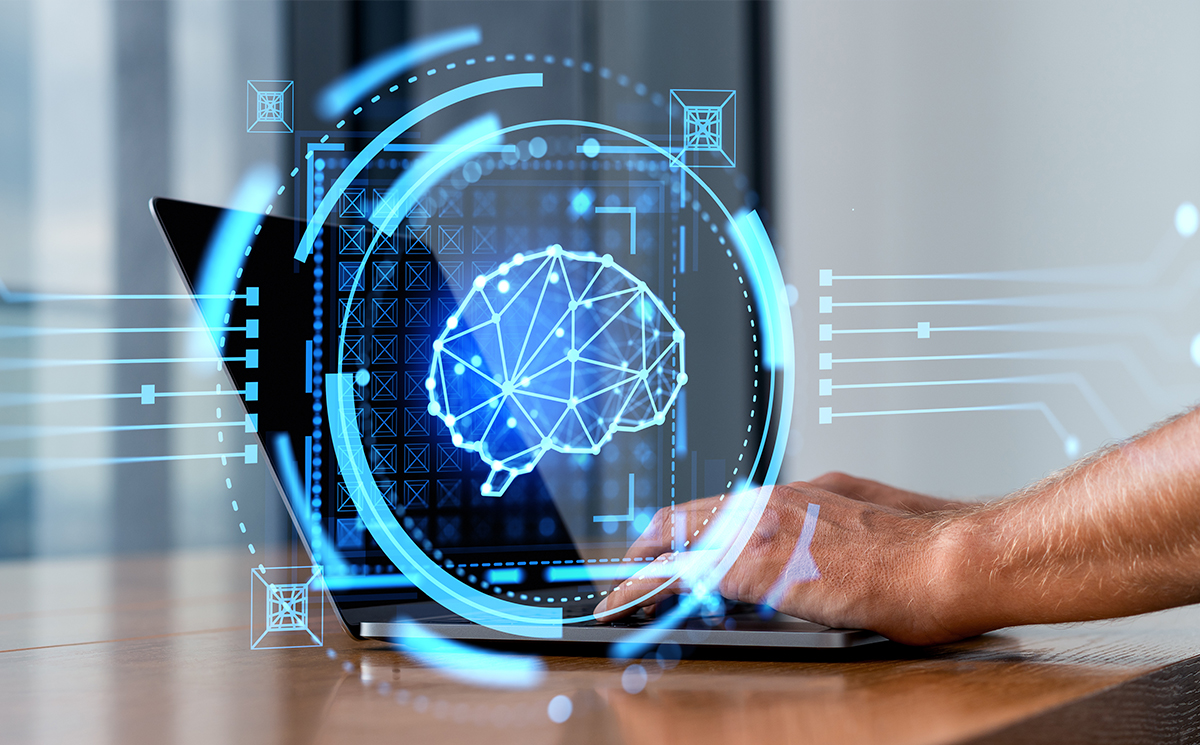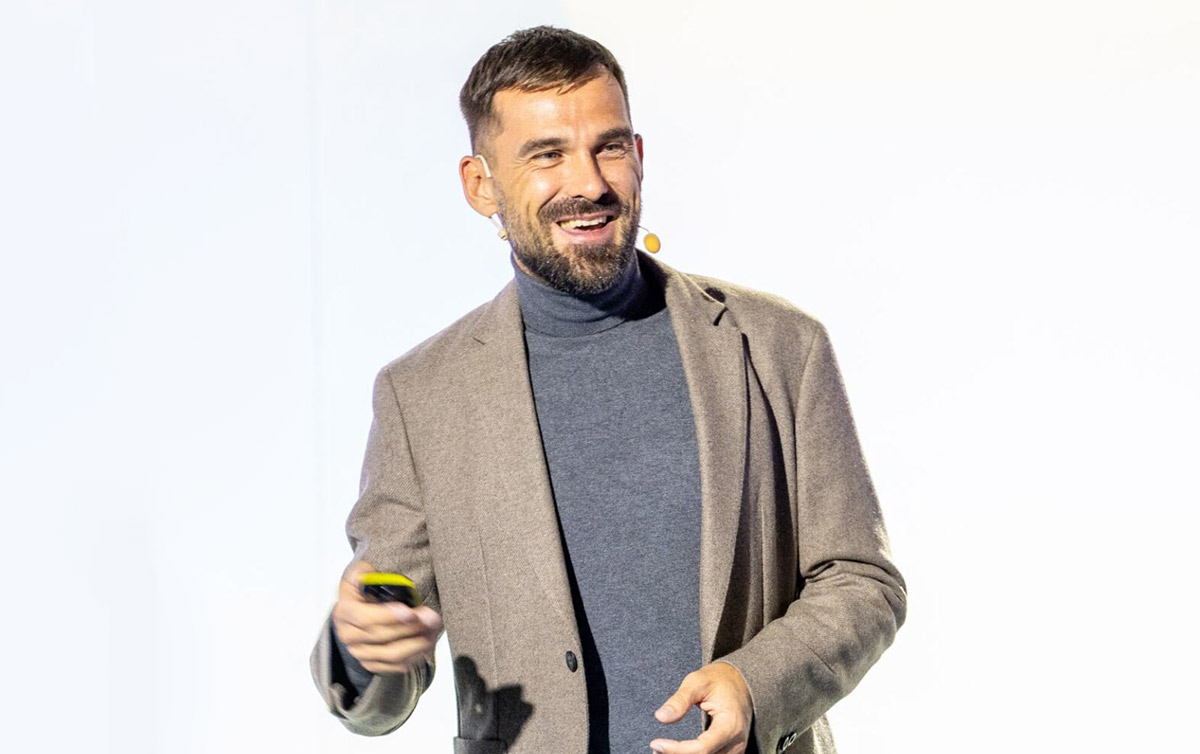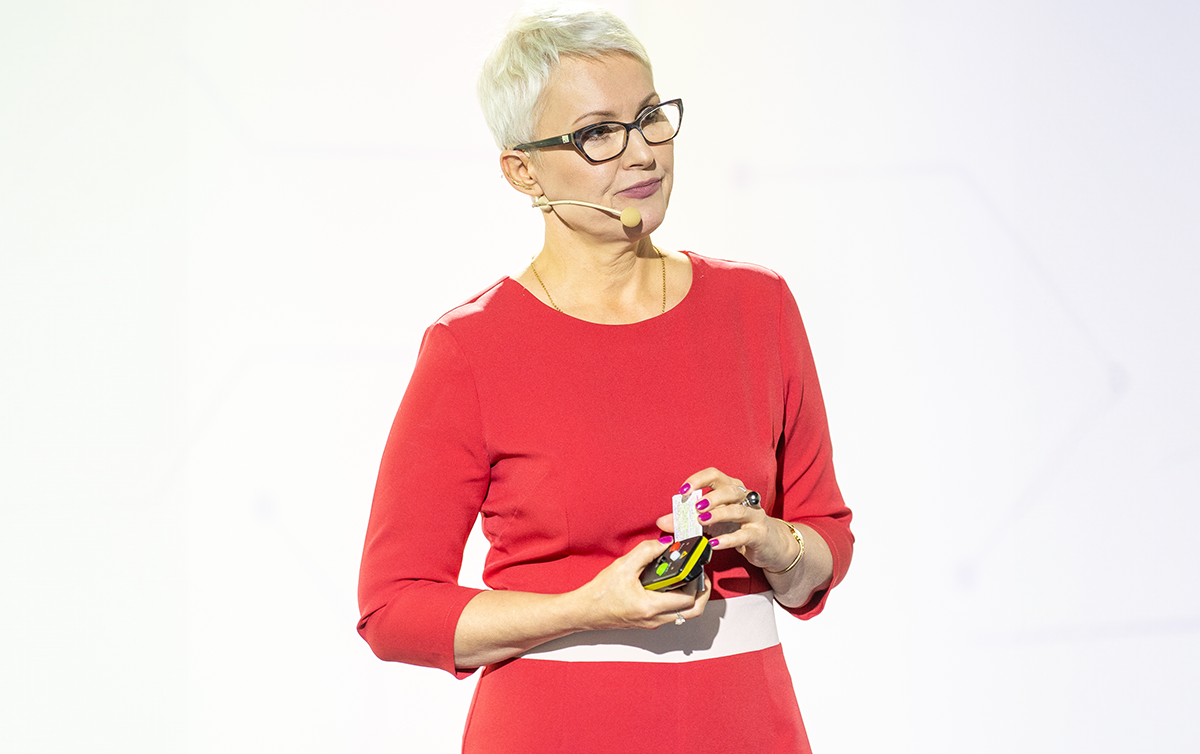Quite a lot, as it turns out. In HR departments, AI can become a partner that handles the most labor-intensive and repetitive aspects of HR processes, freeing up more time for people to focus on the most relevant matters. Such ‘relevant matters’ include tasks that require creative thinking, rational analysis, interpersonal connections, drawing conclusions and making decisions. In essence, AI can save you time and effort, so that you can shift your attention towards critical tasks.
AI – the solution of tomorrow available today
Before exploring the extent to which AI can be used in HR operations, let’s have a closer look at the current availability of AI solutions in the market. AI is still a long way from becoming a standard part of HR. However, the use of AI is definitely not a passing trend. In fact, it’s going from strength to strength. Evidence for this claim comes, for example, from this year’s Manpower Group report [1]:
11 percent of Polish businesses are early adopters of AI solutions in HR,
20 percent of organizations use AI in specific parts of their recruitment processes,
19 percent have plans to implement AI within the next year,
16 percent intend to do this over the next three years.
Consequently, it’s wise to stay informed and deepen your knowledge of this upcoming technology. AI might soon be a standard tool in the majority of businesses. In what ways can it support your organization?
AI and HR challenges
It’s interesting to note that mistakes in recruitment and hiring can lead to as much as 80% of employee turnover [2]. So it’s safe to say that the first touchpoint between the company and the employee is indeed crucial. Can AI support you at this stage? It appears so – and quite effectively, too.
This is where economies of scale come into play. Currently available AI solutions have the capability to sift through more than 300 million social media profiles in one go [3]. In this way, they’re able to identify ideal candidates on LinkedIn without being limited by working hours, weekends, etc. Hence, recruiters essentially have a helper working for them nearly 24/7.
It’s no surprise, then, that AI can reduce recruitment time by up to 30%, and if appropriately calibrated and utilized, AI solutions can decrease employee turnover by up to 20%. Such data are reported by PWC after a study performed with Matching Artificial Intelligence Assistant (M.A.I.A.) [2].
However, there’s no way to achieve such impressive results if AI support is used in just one aspect of the recruitment process. In fact, AI solutions can effectively assist recruiters across almost every stage of the process: from sourcing and communication to analytics and assessments, all the way to interviews and feedback. Let’s look at all these aspects in detail.
Comprehensive AI support in the recruitment process
Stage 1. Job advertisements
Artificial intelligence can serve as an unbiased analyst helping to create the perfect job advertisement. AI is able to identify the most popular and most relevant keywords in job ads, assisting recruiters in discovering top candidates [3].
Stage 2. Candidate search
Up to 75% of the candidate pool are the so-called passive candidates. These are individuals who, despite being open to changing their job, don’t actively seek new opportunities by browsing job advertisements or submitting applications. Consequently, the company might never locate the perfect candidate who would otherwise be happy to consider the job offer if it reached them directly. This is where AI can once again become the head hunters’ ‘secret weapon’. It can browse through passive candidates, analyze their social media engagements, and evaluate their inclination to switch employers [3].
Stage 3. Resume review process
AI is also a remedy for the challenges faced by recruitment teams that normally spend a considerable time sifting through a vast pile of resumes to find candidates that align with their expectations. The solution here is to brief the AI appropriately by identifying key prompts. A good example is the ATS system, which is often used by larger companies. Even when handling hundreds of job applications, ATS is able to filter down the candidate pool to those possessing the desired qualifications or attributes [4].
Stage 4. Contact with candidates
The capability of AI solutions to provide analytical support is no great surprise. However, the area of communication is typically associated with emotional intelligence and contextual comprehension. Should AI be cast aside in the communicative domain? Absolutely not!
AI can be helpful in customizing your message to specific candidates and suggest the most effective communication approach to engage with them [3]. This is especially beneficial in contacts with the passive candidates mentioned above.
AI – in this case in the form of chatbots – can also come in handy at the very early stage of job interviews, which serves to clarify the information contained in a job advertisement or resume. Previously, such preliminary selections were not possible until after the first interview, frequently leading to a waste of time for all involved. Chatbots can provide detailed information about the company, the team, or the prerequisites for the job. While not a substitute for face-to-face interaction, it improves what’s known as the candidate experience [3]. However, what about the actual job interview?
Stage 5. Job interview
This is where AI’s analytical abilities come to the fore again. AI can assist recruiters in evaluating job candidates’ attitude, self-confidence, and even more nuanced aspects like maintaining eye contact [4].
However, bear in mind that even the most accurate data in this category require human insight and understanding of context (for example cultural specificities), which humans still can do better than AI!
Stage 6. Feedback
The candidate experience referred to above is also important after the recruitment process. With AI support, a candidate who doesn’t progress to the next recruitment stage can receive detailed feedback and a thank you for their time [5]. Before the advent of AI, these activities had to be carried out by the recruiter, which generated a significant amount of additional workload.
Stage 7. Big picture
Leveraging AI for impromptu recruitment tasks is extremely effective, but at the same time fails to make use of the full analytical potential of this technology. Data gathered by artificial intelligence can aid HR departments in the development of large-scale recruitment strategies. The findings provided by PWC, among other data sources, indicate that AI, consistently fed with data, offers tailored recommendations specific to each company [2]. Such recommendations are very important as the building blocks of strategies.
AI and GDPR
Leveraging AI solutions for data acquisition and processing offers immense convenience, saves time, and yields very precise conclusions. However, it also raises the same concerns that companies encounter with regard to personal data and compliance with GDPR regulations.
Fortunately, the issue has already been addressed by the EU legislators. The GDPR contains provisions on automatic personal data processing. They anticipate and allow the use of AI. However, they state that “every data subject should have the right to know and obtain communication in particular with regard to the purposes for which the personal data are processed, where possible the period for which the personal data are processed, the recipients of the personal data, the logic involved in any automatic personal data processing and, at least when based on profiling, the consequences of such processing” [6].
AI-related concerns
Concerns regarding AI extend beyond just GDPR regulations. Being a relatively new and rapidly evolving technology, AI understandably raises a number of questions. Some of them recur over and over again.
Is AI putting recruiters’ jobs at risk?
This concern seems entirely justified. Some experts claim that AI in this field is evolving so rapidly that it could potentially replace 16% of recruiters by 2029 [7]. However, it should be noted that such predictions accompany the introduction of every new technology. Looking back, it’s clear to see that such novel solutions tended to change the characteristics of professions rather than eradicating them altogether. Consequently, we should focus on considering the competencies of new-era recruiters and the extent to which they will be able to leverage the potential of new tools like AI.
Should we trust artificial intelligence?
While the AI technology is evolving rapidly, its prime years are still ahead. This means that each time AI is used, it should be filtered through the recruiter’s own professional experience. What should you focus on?
Psychological aspect
AI lacks the intuition possessed by experienced recruiters, who are able to gauge how well a given candidate fits into a team and whether they will build rapport with the manager. Artificial intelligence might miss certain details that are evident in face-to-face conversations or particular expressions included in candidate resumes.
(In)appropriate word choice
There’s a risk that AI might fail to spot key words in resumes because job applicants might use a different wording to describe the same skill or competency. As a consequence, there’s a risk of overlooking talents solely because they didn’t include a specific phrase in their resume [7]. This is the same mechanism for which, for example, Polish high school final examinations were criticized. Since the exams were graded with an answer key, the most imaginative students, with an extensive vocabulary and adept at metaphors, often struggled within an imperfect system. This aspect should be considered in the recruitment process.
Myth of impartiality
It’s often highlighted that data analysis by artificial intelligence, devoid of emotions and cultural sensitivities, is inherently unbiased. That could very well be the case in the near future. However, for the time being experts are cautioning that AI solutions might potentially reflect the biases of their developers. Such a bug was found and fixed by Amazon in 2018. It was discovered that the tool utilized at the time had a bias against women [7].
There’s yet another crucial point to consider. AI solutions are prompted by humans, so it’s at this level that problems with pinpointing tasks might occur [7]. However, there’s a good chance that over the years AI will get better and better at dealing with all these issues.
Is it worth the effort?
Despite the challenges mentioned above, the answer to this question is YES. Artificial intelligence supports recruiters by handling tedious repetitive tasks, which significantly streamlines and accelerates the workflow. It’s an excellent analytical tool that helps to fish out talents that might not have entered the recruitment process without targeted AI-driven headhunting activities.
In conclusion, AI provides a great help to HR departments in tackling recruitment challenges. Despite being a sophisticated and immensely beneficial tool, artificial intelligence still needs human oversight, experience, instinct, and – or perhaps primarily – empathy.
AI saves you valuable time. You can gain similar support from MyBenefit. The platform integrates a comprehensive cafeteria system, gamification, and modules that streamline daily operations. In addition to benefiting the HR department, it brings together all essential tools in one place. Artificial intelligence is increasingly being used by MultiLife. It’s an ever-evolving well-being assistant for those who want to enhance personal development, diet, health, and mental fitness. Both focusing on themselves and their fellow workers. Check out how different products create a benefits ecosystem: benefitsystems.pl.
References:
1. https://www.manpower.pl/pl/publikacje/blogs/2023/08/29/50-proc-polskich-firm-korzysta-z-ai-w-procesach-hr
2. https://www.pwc.pl/pl/case-studies/matching-artificial-intelligence-assistant.html
3. https://www.elevatosoftware.com/blog/sztuczna-inteligencja-w-rekrutacji/
4. https://businessdialog.pl/artykuly/bd-rekrutacja-ai-06-22
5. https://aibusiness.pl/sztuczna-inteligencja-w-rekrutacji-wsparcie-dzialow-hr/
6. https://poradnikprzedsiebiorcy.pl/-sztuczna-inteligencja-a-ochrona-danych-osobowych
7. https://hrstandard.pl/2023/02/20/ai-kontra-czlowiek-kto-jest-przyszloscia-rekrutzacji/





















